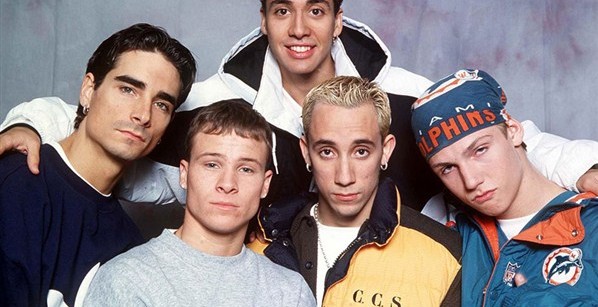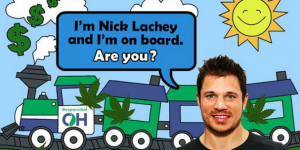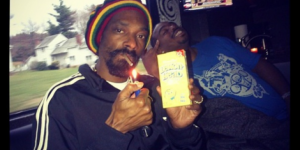 Music
Music
This lyrical breakdown explains why you loved '90s boy bands so much
by Mark Teo
June 11, 2014
In the ’90s, there were few musical forces bigger than the boy band. And two decades since their heyday, we still love to wax poetic about the Tiger Beat era: We still jam LFO’s “Summer Girls” once the thermostat hits 20, reminisce about Barrie, ON’s favourite golden-voiced sons—Voices in Public, stand up—and debate whether or not B4-4’s “Get Down” was about blowjobs. (Hint: It is.)
Still, in 2014, the boy-band craze seems a little odd: Why, exactly, were droves of teens obsessed with spray-tanned, baby-faced men in monochromatic camo? Why, exactly, did anyone think that frosted tips were a good idea? And why do we, as full-grown adults, still attend NKOTB reunions and engage in passionate debates about Aaron Carter’s meth face?
These are questions that Fivethirtyeight’s Data Lab—who sifted through 1,290 songs and more than 220,000 words—sought to answer. So, why were we obsessed with boy bands? The short answer: It’s because they were singing directly to us. And we’re not kidding. This lyrical breakdown shows that us—”you”—is by far the most common word sung by boy band beaus. The most common two-word phrase? Predictably, it’s “and I.”
The word “I” appears almost twice as many times as “the.” A foray into the most common two-word phrases also reveals why these bands were so loveable—they promote open communication. “I know,” “want you,” and “tell me” are among the most common phrases, meaning that SoulDecision lyrics likely came across as empathetic, willing to listen, and ready to share their feelings. The phrase “I can’t,” used 448 times, also indicates that boy bands were willing to admit their weaknesses—they were gorgeous humans, but humans after all.
(Curiously, the top six two-word phrases, read in order, sound exactly like a fictional boy band chorus: “And I know that I want you to know…”)
A foray into the most common three- and four-word phrases, meanwhile, prove to be hilarious: More than anything, they proved that Blink 182’s boy-band spoof, “All the Small Things,” nailed it. The most common terms? “Na na na,” “oh oh oh,” and “la la la.” It’s just more proof that O-Town weren’t just singing in English—their were talking about wet dreams in a universal language.
Also, how did “Warm it up Kris” appear more than 30 times in this study? Was that the work of Kris Kross alone?
Sadly, the topics boy bands sung about got predictably banal—they can only sing about “you” for so long. And considering that their fanbases, usually in their teens, grow up, these boy bands faced challenges to stay relevant—they either had to evolve their lyrical content (see: Justin Bieber’s struggle with a bad-boy image), start evolving their lyrical content to match the lives of their audience (although singing about working-life drudgery wasn’t their strong suit), or face extinction.
Sadly, the last option was the most prevalent.
Compared to other bands in the ’90s, boy bands had a limited shelf life: Artists who charted in the ’90s typically went on to 10-plus years of production. Most boy bands lasted a little under seven years.
But long after they were gone, boy bands weren’t forgotten. Because, after all, they were singing about you—us—and that’s a topic that’s still near and dear. Also: blowjobs.
Tags: Music, 98 Degrees, B4-4, Backstreet Boys, SoulDecision








